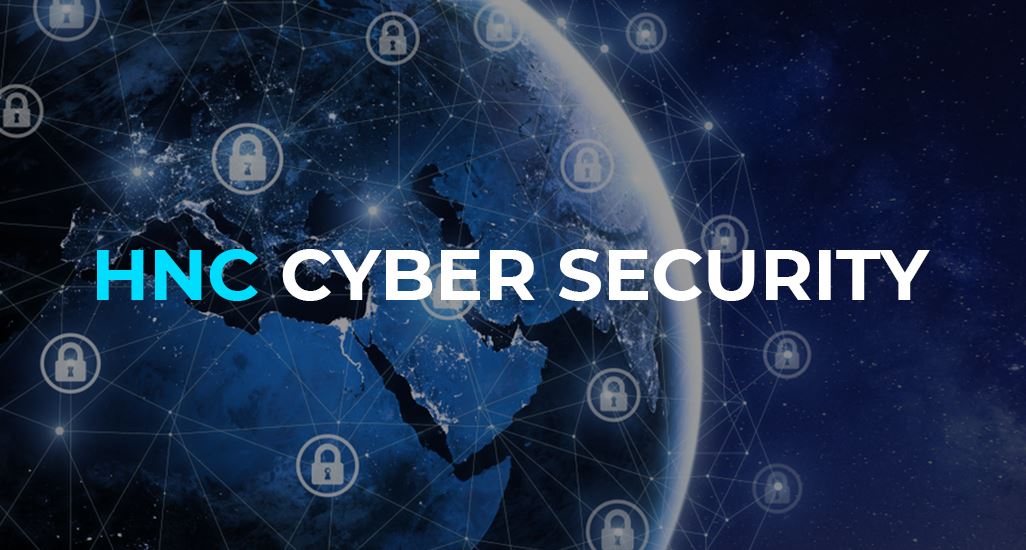
Course Title: HNC Cyber Security
Progression to: HND Cyber Security
Modes of Study:
Sessions: Jan & Aug
Course Introduction:
Everybody is fascinated with information technology (IT) and its persistent prospects. When encountered with a new challenge, individuals probe a solution in an analytical way. A career in computing cybersecurity can bring all of your strengths together to tackle any vague and unresolved computer related issues which an individual can ever imagine. ITPT HNC programs in cybersecurity course comprehensively cover all cyber vulnerability aspects. We teach exactly what you prefer in a fast-paced, innovative industry that values radical professionals.
Cybersecurity is the tool of protecting inter-connected systems, networks, data, hardware and software programs from cyber attacks. These attacks are usually aimed at accessing, retrieving, changing, or destroying sensitive information; extorting money from users; or sabotaging normal business processes. Implementing effective cybersecurity measure reduces the risk of cyber-attacks and protects against the authorisation exploitation of systems, networks and technologies.
Cyber Security jobs are among the highest paid and have the highest job satisfaction.
At ITPT, we have combined several standalone units in HNC Cyber Security to prepare individuals for a career in the IT industry such as Cisco, CompTIA, EC-Council, and etc. This will also enable learners to attain any global Vendor specific certifications accordingly.
Unlike many degrees, this course is vocationally focused and therefore can lead straight to a career. Moreover, they’re a great stepping stone to a higher qualification, as you can choose to ‘top up’ an HND with extra studies, in order to convert it to a bachelor’s degree.
These technologies can be learned and mastered by completing both HNC & HND.
Minimum Entry Requirements is likely to include at least one of the following:
Additional Selection Requirements:
All applications are subject to an interview to assess suitability in terms of academic qualifications and motivation. Reference will also be considered.
Students will be invited to a group and/or individual interview where they will get the opportunity to find out more about the course and to tell us why they are interested in this particular area.
What learners will study?
Higher National qualifications provide both practical skills and theoretical knowledge that meet the current employer’s requirements. Students will study a selection of appropriate units designed to develop student’s skills and competencies to enable further study in a Degree Programme.
Topics may include:
Assessment Strategies:
Assessment will be mainly continuous, with a mixture of practical and theoretical assessments. There is also a one Graded Unit exams which are a closed book examination.
How & who will be teaching the course?
This inspiring, learner dedicated Higher National Programme will be delivered to students by our highly professional teaching staff with significant Cyber Security experience. All Tutors has got relevant experience and accredited certifications from vendor’s neutrals such as Cisco, CompTIA, and EC Council.
There will be a mixture of class lecturers, Labs, group projects and presentations.
Hands on Experience:
Students will be working on live equipment such as Routers, Switches, Firewalls and other relevant security devices.
Course Development Routes
This Higher National Qualification integrates learning materials from industry standard vendors such as Cisco and CompTIA which can help students to prepare for a variety of vendor certification exams.
On completion of this qualification or during the course, units relevant to any particular vendor’s certification students can appear to equip themselves with the globally recognised and employers demand certificates from any of the following:
All vendors external exams fee has to be borne by the students but being a partner with PearsonVue Authorised Testing Venue we can get student’s discounts on their CompTIA exam vouchers.
In HND, there will be more opportunity to learn further vendors based on SQA units which will help students to attain further vendors specific certificate which is today’s employer’s demand.
Academic Progression Route upon Course Completion
On completion of this course, candidates will move on to the following:
HNCs and HNDs can provide progression to degree-level study. For example, the HNC Cyber Security should allow direct entry into the 1st or Second year of most degree programmes, and the HND in Cyber Security should allow direct entry to most third-year programmes.
All universities have their own assessing criteria, admission to the relevant year will also depending upon student’s grades.
Jobs/Employment Roles
Graduates from this programme will be well-positioned to apply for industry jobs in Cyber Security or Networking such as;
Application Forms
The forms are available to download from our website. HNC Application Form can be collected from the Admissions Office.
1. Full Time: https://www.saas.gov.uk/full-time
2. Part Time: https://www.saas.gov.uk/part-time
For students living (domiciled) in Scotland or the European Union and with a term time address in Scotland, the following fees will apply:
Higher National Awards (HNC, HND) |
Fee |
| Full-time per year | £1,285 |
| Part-time | £1,285 |
Fees are payable in advance each academic year unless otherwise agreed.
We also provide flexible fee instalments to help students in paying their fee.
There are a number of other funding opportunities available to UK and EU students to help them to pay for their studies and also to cover cost of living whilst studying. Contact the college for more details.